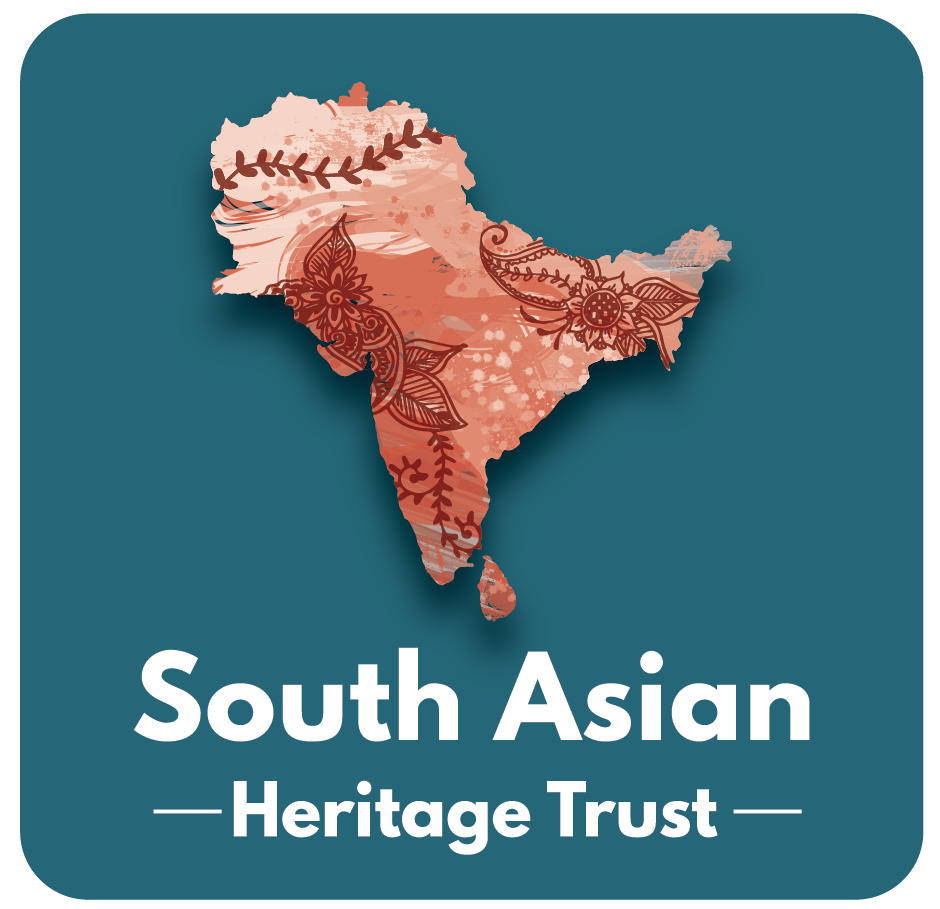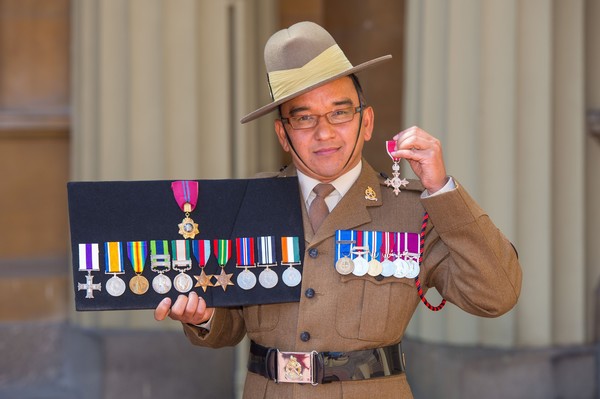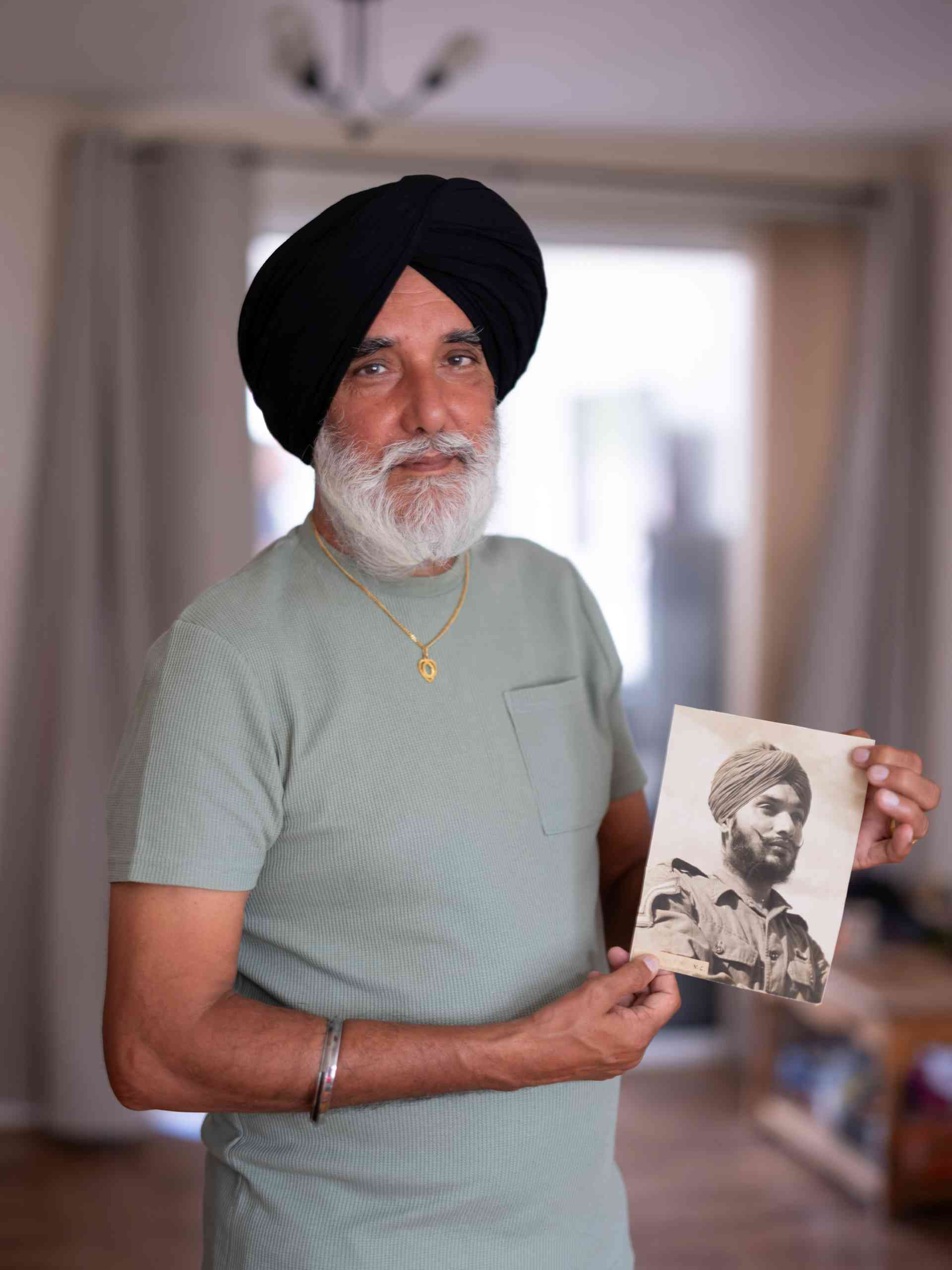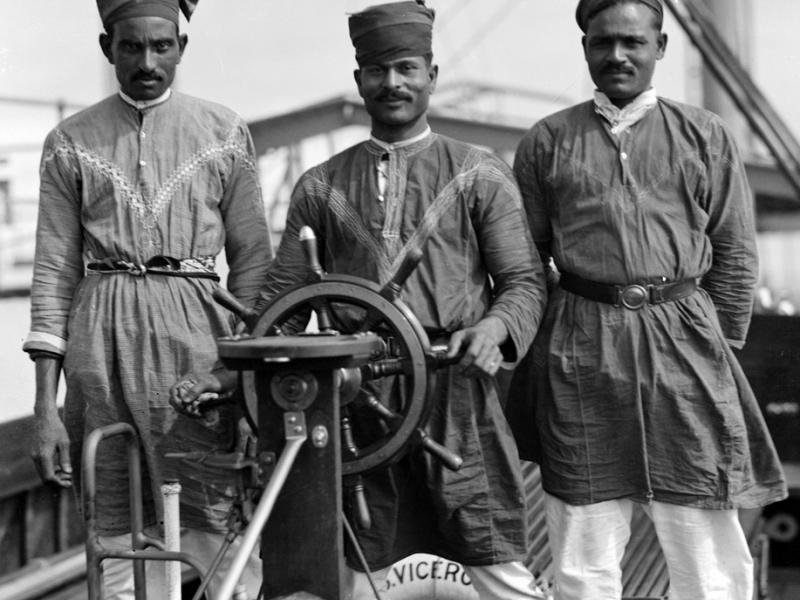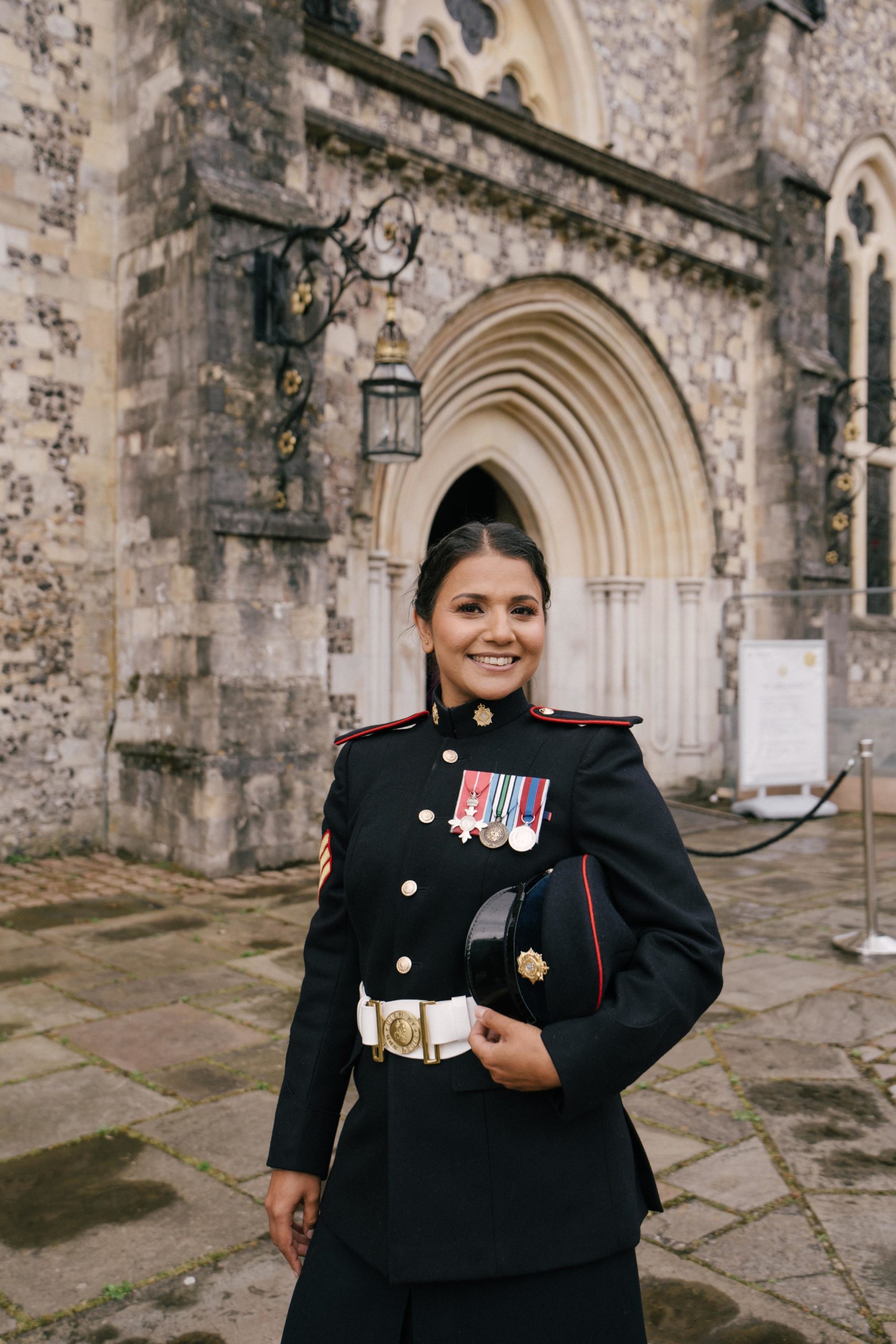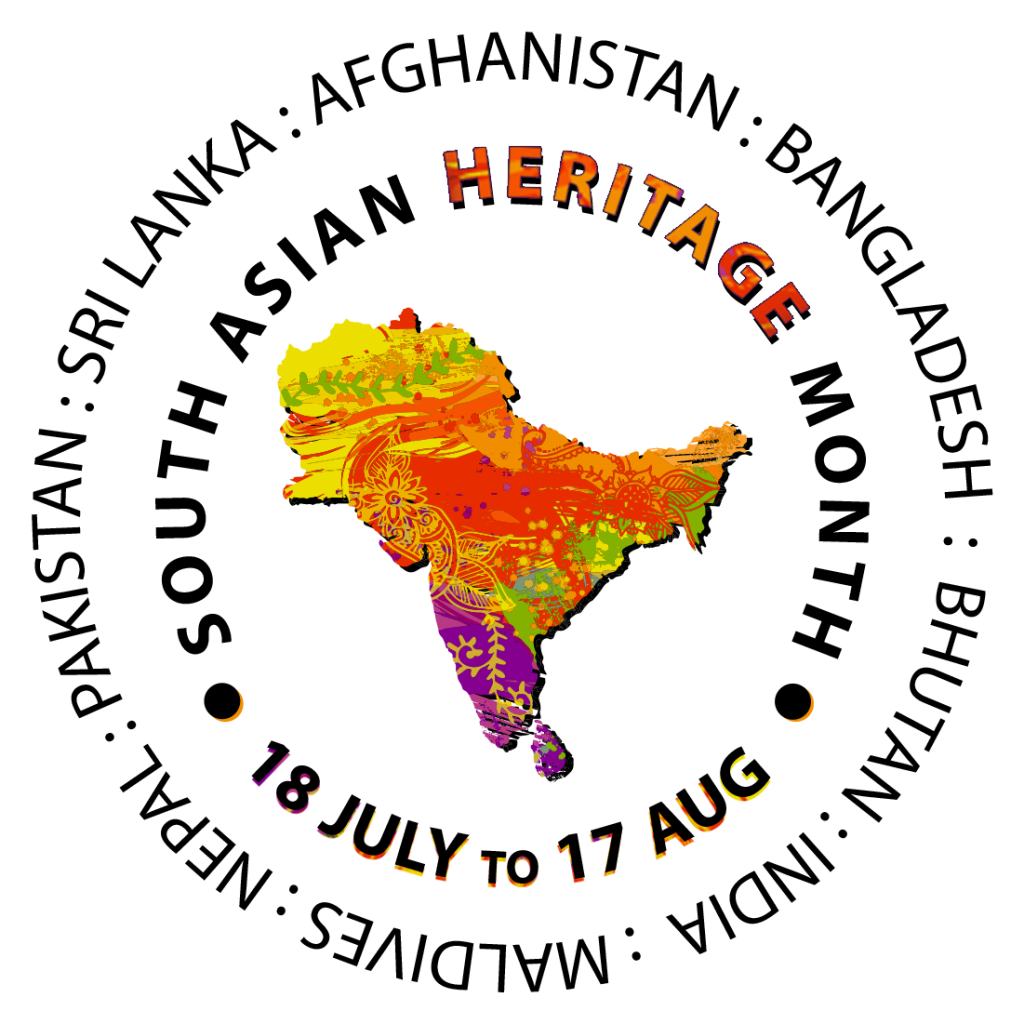A proud third-generation Gurkha, serving in the British Army for over 32 years, his story, intertwined with the broader theme of South Asian Heritage Month, emphasises the importance of being true to oneself—”Free to Be Me”—while serving in the military. Khadak is a member of Gurkha Staff and Personnel Support (GSPS) Company of the Brigade of Gurkhas, currently serving at Colchester Garrison. The Brigade of Gurkhas is a unique organisation in the British Army with a reputation of being amongst the finest and most feared soldiers in the world
Khadak Chhetri’s lineage is steeped in military service. His grandfather, Subedar Major Kalu Chhetri Sirdar Bahadur OBI MBE MC, served in the 2nd King Edward’s Own Gurkha Rifles and during the Second World War endured the harsh conditions as a Japanese Prisoner of War. For his unwavering service, he was awarded an MBE which Khadak collected at an Investiture ceremony at Buckingham Palace in 2016, 70 years after the medal was awarded to his grandfather.
Khadak’s father’s service in the British Army further cemented the family’s legacy. Capt(QGO) Bishnu Bahadur Chhetri, who served in the 1st Battalion The 2nd Gurkha Rifles, was a Borneo veteran. Tragically, at the age of 40, he passed away in 1982 while on leave in Nepal, a loss that profoundly impacted the family. At just nine years old, Khadak felt an early sense of responsibility and a drive to honour his family’s legacy. “My father was building a house for us when he passed away. Initially, I couldn’t believe it because my grandmother was still alive, hence it wasn’t his time yet, well at least in my child’s mind then,” Khadak recalled.
This sudden shift from living in Hong Kong to a remote village in Nepal was jarring but fuelled his determination to return and continue his family’s tradition of military service.
Khadak’s path to becoming a Gurkha was not straightforward. His first attempt at Gurkha selection in 1991 was unsuccessful, but he persevered and succeeded on his second attempt in 1992. His basic training began in Hong Kong, where the Brigade of Gurkhas was based at the time. The rigorous process, from initial selection to intensive 9 months training, was demanding, but Khadak thrived. Joining the same regiment as his father and grandfather was a moment of immense pride. “It was simply icing on the cake being able to join my forefather’s regiment,” he said.
When asked about celebrating his heritage while serving in the British Army, Khadak highlighted the unique cultural traditions upheld within the Gurkha units. “Within Gurkha units, there are planned events throughout the year to celebrate our Nepalese and Gurkha heritage. Whenever possible, units try their best to coincide such events with the Nepalese calendar back home,” he explained. Major events such as Nepalese New Year, Dashain, and Tihar (Diwali) are observed whenever possible.
However, celebrating heritage becomes more challenging when attached to non-Gurkha units. “If you are attached to a different unit, like when I was serving with 7 Parachute Regiment, Royal Horse Artillery (7PARA RHA), you either travel to the nearest Gurkha units or celebrate with other Gurkhas around that location,” he noted. Financial grants from regimental headquarters often help detached Gurkhas come together for celebrations. He fondly recalled observing Tihar (Diwali) in the jungle in Kenya and celebrating Dashain with fellow Gurkhas during his tours in Afghanistan.
Throughout his career, Khadak has experienced both the challenges and rewards of integrating into the broader British Army. His first significant posting away from Gurkha units was with 7 PARA RHA in Aldershot in 1997, part of a pilot scheme to integrate Gurkha clerks into the wider Army. This transition was challenging due to cultural and linguistic differences, but Khadak’s determination saw him through.
The Gurkhas have successfully maintained their traditions. “It starts from basic training in Catterick and continues throughout your Army career,” Khadak explained. The training includes English language training, cross-culture awareness, and military history, fostering a fusion of Nepalese and British cultures. Gurkha bases feature temples supported by Hindu and Buddhist religious teachers, and the presence of BFBS Gurkha radio stations in the UK, Brunei, and Nepal helps maintain a connection to home.
Khadak’s dedication has been recognised through numerous medals and citations, reflecting his outstanding service. His accolades include the NATO Medal with Clasp for Former Yugoslavia, Operational Service Medal for Afghanistan, NATO Medal for ISAF, and multiple Jubilee medals. Notably, he was awarded Army Three Star Commendations and Meritorious Service Medal (MSM) by both the UK and US armies.
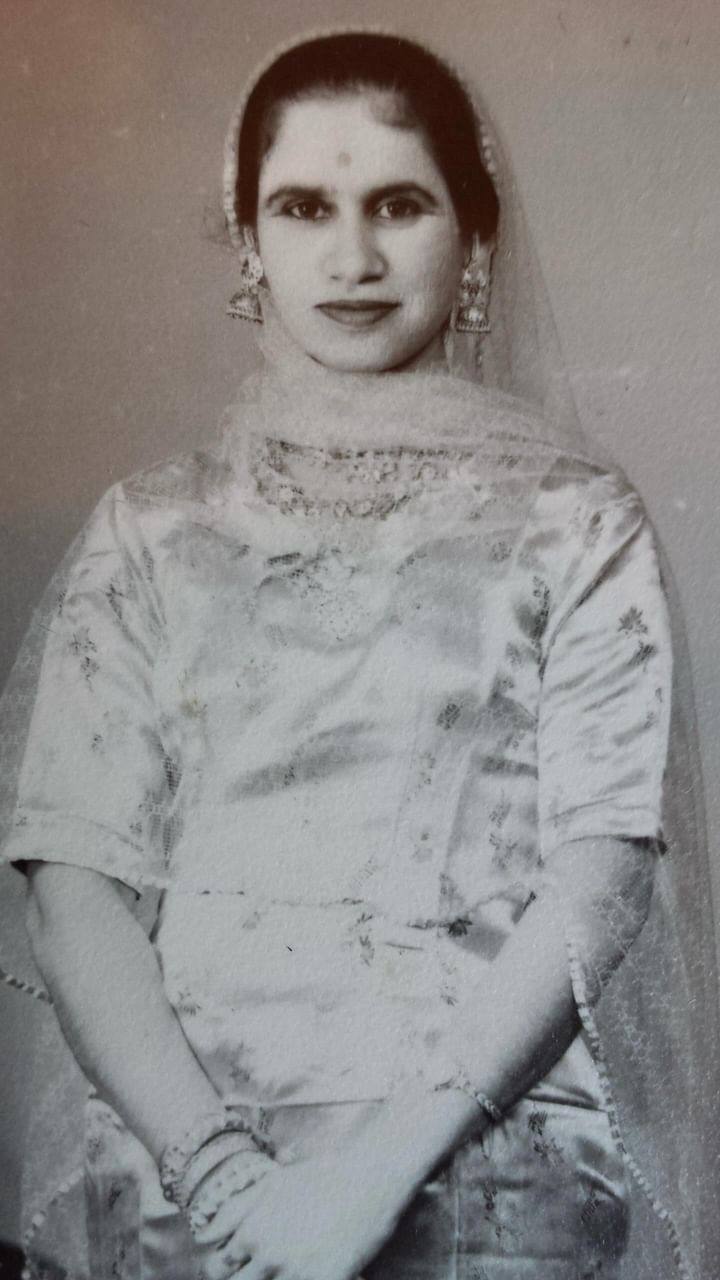
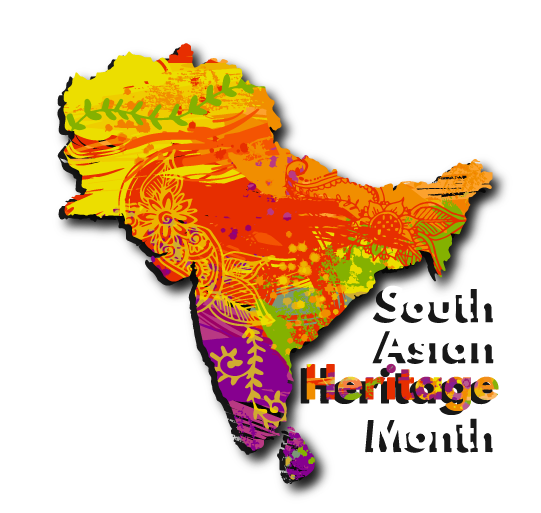 South Asian Heritage Month dates changed to "July" from 2026 — Learn more here →
South Asian Heritage Month dates changed to "July" from 2026 — Learn more here →
